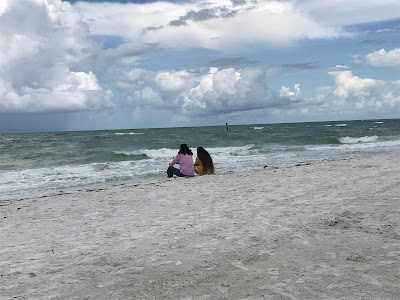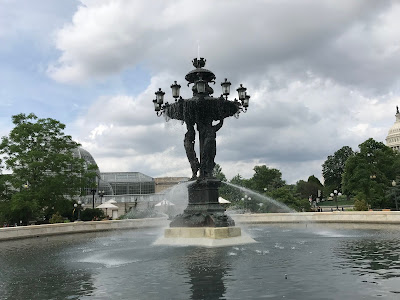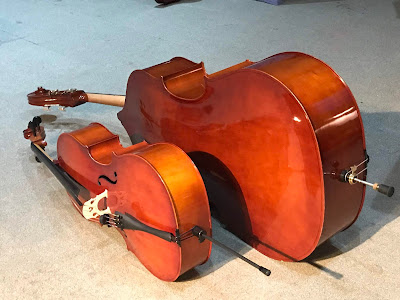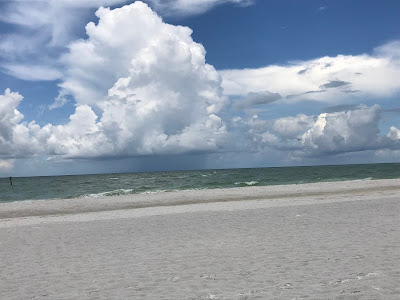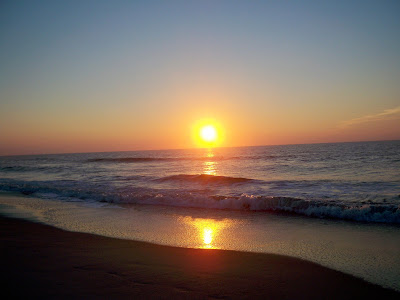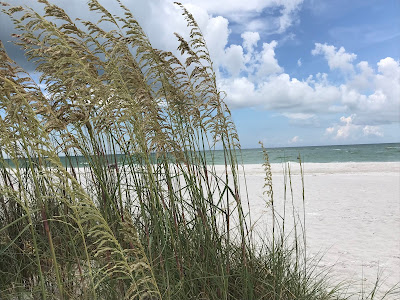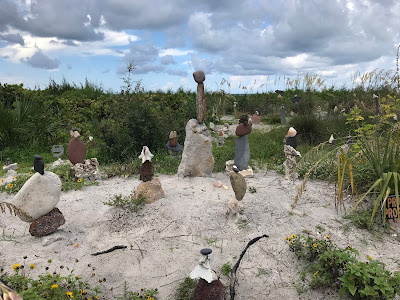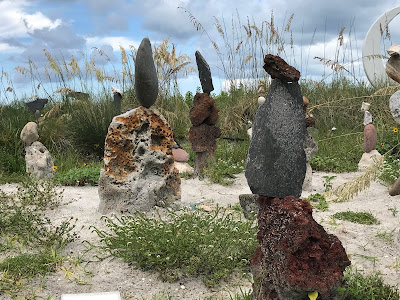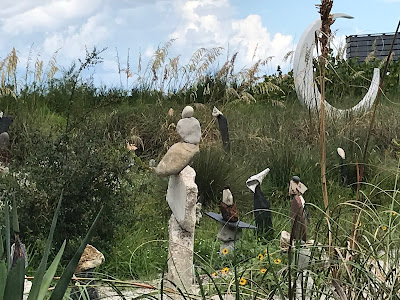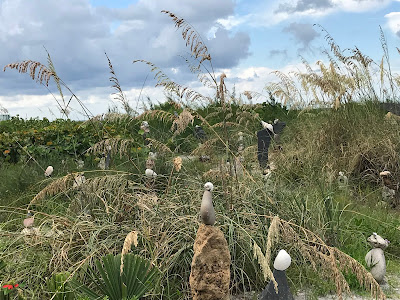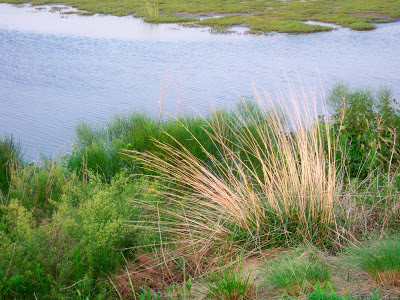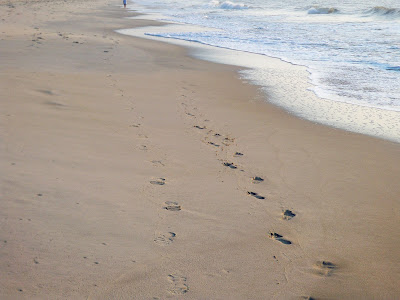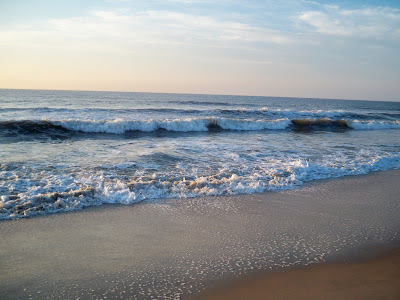Remembering Waves
It’s been a tough work re-entry, so this morning I’m thinking about the beach. Most of the people I saw there are back home again, too. The vagaries of chance and locale that brought us together have split us apart again.
But we were renewed and refreshed by our contact with the elemental, with forces beyond our control. We encounter those all the time, of course, but seldom are they so powerful and so beautiful and so endlessly fascinating to observe.
I don’t swim in the ocean; I just look at it. But I never tire of its patterns and moods: of calm, warm, lapping waters or dark, fast, roiling ones. Of waves that roll and stipple and soothe. I’m seeing those waves now, and will see them later when I walk through the suburbs, when I make my way through the day.
